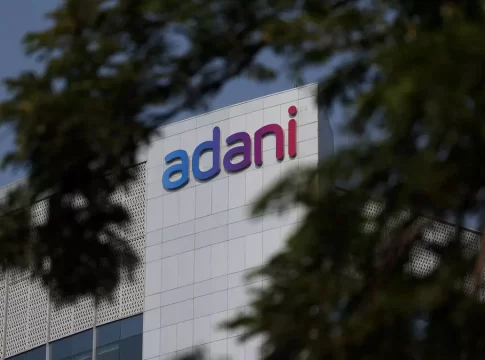In an unfolding international financial drama, Gautam Adani’s sprawling Indian conglomerate finds itself at the epicenter of a seismic legal and financial crisis. A U.S. arrest warrant for Adani, linked to an alleged $265 million bribery scheme, threatens to choke the flow of fresh credit to the group, prompting banks and investors to reevaluate their positions. The news has further caused havoc holding various projects in the pipeline to a complete halt.
The reverberations in financial markets have been swift. Adani Group’s bonds have plummeted, with a notable decline of 2.5 cents on the dollar for 2029 Adani Ports and Special Economic Zone bonds, as noted by Reuters. This fall below 80 cents marks a significant hit to investor confidence, particularly as the group’s shares suffered a combined market value loss of a staggering $26 billion.
The immediate reaction from global banks has been cautious. According to insider sources, major lenders are contemplating a freeze on extending new credit to Adani, while maintaining existing loan arrangements. This prudent approach reflects deep concerns over the group’s ability to navigate such turbulent waters without compromising its extensive growth plans.
The controversy casts a long shadow over India’s renewable energy sector, a vital component in global climate strategies. Nimish Maheshwari, an independent analyst on Smartkarma, emphasizes the potential repercussions: “This could deter international investment in India’s renewable energy, necessitating rigorous transparency and due diligence, potentially slowing project financing.”
The ramifications are not confined to Adani alone. India’s Securities and Exchange Board (SEBI) is conducting preliminary checks into the group’s disclosures to assess compliance with local market regulations. SEBI’s findings could steer future regulatory actions, underscoring the broader implications for market stability.
Unyielding in its defense, the Adani Group has dismissed the allegations as “baseless,” vowing to exhaust all legal avenues. Yet, the operational impact is undeniable. Following the indictment, Adani Green Energy aborted a planned $600 million U.S. bond sale, signaling heightened caution within its strategic operations.
International business prospects are also at risk. Kenya’s recent withdrawal from a $2 billion procurement process and the annulment of a 30-year, $736-million partnership deal with Adani further underscore the geopolitical and financial ripple effects.
The situation has garnered critical attention from both public readers and market specialists. While the group’s future hangs in balance amidst mounting legal and financial pressures, the implications could stretch far beyond its immediate operations. The unfolding legal narrative and its potential to reshape market perceptions highlight the intricate dance between legal accountability and corporate resilience.
As the saga evolves, the Middle East Observer will remain vigilant, offering detailed analyses and insights into the evolving landscape of corporate governance, financial markets, and international economic relations. Stay tuned as we continue to track this unprecedented financial narrative and its cascading effects on the global market stage.


